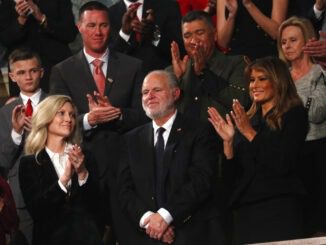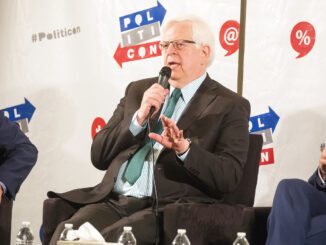
 I’ll let you in on a secret: The best calls to a radio show are usually the ones from people that disagree with the host.
I’ll let you in on a secret: The best calls to a radio show are usually the ones from people that disagree with the host.
They create tension. And, like a surreptitiously usurped champagne bottle on The Bachelor, tension is often very compelling.
These calls create uncertainty. Who will “win” the argument? Will the caller humiliate the host? Will the host swat down specious arguments and expose the fallacy of the caller’s argument? We’re all listening to find out!
They create fans. People appreciate the effort to engage in a debate — especially if their opinion wins. But even if they disagree with the victor, they appreciate being heard. Some of the highest praise I’ve ever received came from the people who disagreed with me the most.
By now you might be wondering why the airwaves aren’t flooded with these kinds of callers and rowdy debates. For starters, only a small percentage of listeners are interested in being live on the radio — let alone arguing with a host. A lot of people don’t like the way their voice sounds on recordings they hear, so they will never call in.
It’s intimidating and scary.
It’s also scary for the host, because you don’t know whether you’re going to lose the argument. Live radio is working without a net. If somebody calls in and beats you in a debate, there’s really nothing you can do about it.
You can’t delete the comment. You can’t click a button to block the audience from hearing your failure. It’s already been broadcast. Some hosts will simply move on, pretending it didn’t happen. But listeners know what they heard.
So, as a host, there is a lot to lose by taking that call.
It’s safer to stay insulated from the uncertainty. It’s safer in the echo chamber.
An unchallenged idea is easy to hold.
Remember 2012 Republican U.S. Senate candidate Todd Akin’s assertion that pregnancy rarely occurs as a result of “legitimate rape?“ It cost him the election.
Do you think that was the very first time Akin had ever said this opinion out loud? Is it more or less reasonable to believe that friends, family, and colleagues never heard him express this opinion before he said it on a TV show?
Of course not.
He probably explained his view to many people over the years. And he was probably never challenged on it. He probably never had to defend it — either publicly or privately.
And the first time he tried, he collapsed.
Over the past 20 years, this has been the general approach to the abortion debate among a lot of radio hosts, reporters, and media personalities. Most ignored the debate because it’s emotionally charged, medically technical, and uncomfortable.
A lot of content creators abandoned the issue. In recent years, pro-lifers have engaged. And polling shows they’re winning the argument.
This is why it’s so important to actually have the debate.
We must be willing to hear and analyze opposing views. One cannot truly know his own argument without knowing his opponent’s. Shutting down an opponent’s speech is a coward’s defense. It betrays a lack of confidence in one’s ability to defend a position.
Sadly, however, it is a frequent tactic deployed in service of ineptitude, ignorance, and authoritarianism.
Those entering the political arena attempting to influence society are compelled to have their ideas challenged. Not protected. To engage in the debate. Not silence it.


